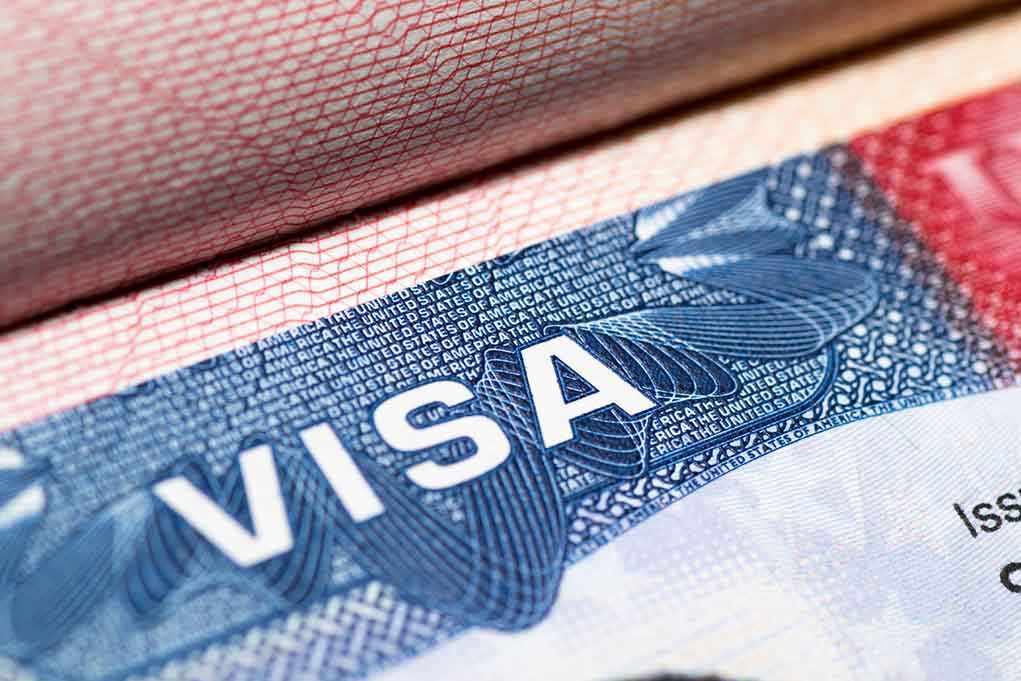
The State Department’s new rule demanding a $15,000 bond from certain business and tourist visa applicants has ignited fierce debate over America’s approach to border security and the cost of international travel.
Story Snapshot
- Nonimmigrant visa interview waivers have been dramatically restricted, with exceptions only for citizens from 42 Visa Waiver Program (VWP) countries.
- Applicants from non-VWP countries now face in-person interviews and may be required to post a $15,000 bond to enter the United States.
- The policy shift reverses pandemic-era leniencies and puts security and fraud prevention at the forefront of U.S. immigration policy.
- Experts warn of longer wait times, higher costs, and increased burdens for both travelers and U.S. consulates.
State Department Tightens Visa Access, Imposes $15,000 Bond for Some
Starting September 2, 2025, the Department of State will require most nonimmigrant visa applicants—including those seeking business and tourist visas—to appear for in-person interviews, ending broad eligibility for the interview waiver or “dropbox” program. The move, announced July 25, 2025, leaves only citizens of the 42 countries in the Visa Waiver Program (VWP) exempt from these new restrictions, allowing them to continue to enter the U.S. for up to 90 days without a visa for business or tourism[1][2][4]. In a further step to deter visa overstays and fraud, the State Department has also introduced a pilot program requiring certain applicants to post a bond of up to $15,000 as a condition of entry.
This marks the most restrictive interpretation of the interview waiver program in recent years and a clear reversal of the Biden administration’s COVID-era policies that prioritized flexibility over enforcement[1][2]. Administration officials state the changes are necessary to address increased visa demand and persistent security threats, as well as to prevent fraud and ensure that only legitimate travelers are admitted[5].
Why VWP Travelers Are Exempt—And Others Face New Hurdles
The Visa Waiver Program, established in 1986, allows citizens of select allied countries to travel to the U.S. for up to 90 days without obtaining a visa, provided their countries maintain strict security and information-sharing agreements with the U.S.[4]. The program’s exemption from the new restrictions underscores Washington’s trust in these countries’ cooperation and their citizens’ low rates of overstays and violations. In contrast, applicants from non-VWP countries—such as India, China, and Russia—will now be required to undergo in-person interviews and may face significant financial barriers due to the new bond requirement[1][2].
According to immigration attorneys, these new requirements will mean longer wait times, higher costs, and more complex application processes for millions of travelers. U.S. consulates are expected to experience a surge in workloads and growing backlogs as they process more in-person interviews. Meanwhile, U.S. businesses and universities that rely on international visitors from non-VWP countries may face delays, potentially impacting the economy and academic exchange[1][2][3].
Security, Fraud Prevention, and Economic Impact
State Department officials emphasize that the new bond requirement and stricter interview rules are vital tools in combating visa overstays and minimizing fraud. They point to persistent security threats and the need to protect American interests as primary motivations for the policy shift[1][2][5]. The $15,000 bond is seen as a deterrent for those who might otherwise violate the terms of their stay, and as a way to hold applicants financially accountable for their compliance with visa conditions.
However, critics argue that the new requirements will disproportionately burden legitimate travelers, especially from developing countries, and could discourage tourism and business with the United States. While security advocates support the changes as common-sense protections, travel industry groups worry about the chilling effect on international mobility and the potential for lost revenue. Immigration lawyers highlight the increased complexity and uncertainty for applicants, noting that consular staff will also face higher administrative burdens[3].
Expert Analysis and Conservative Perspectives
Experts agree that the exemption for VWP countries reflects their strong security partnerships and low risk of abuse, while the increased scrutiny for others is consistent with a renewed focus on border enforcement and national security[4]. Many in the conservative community see these policy changes as long overdue corrections to years of lax enforcement and government overreach that failed to prioritize American safety and sovereignty. The policy shift aligns with long-standing demands for stronger borders, more accountability, and the protection of tax dollars from abuse by those who have no legal right to remain in the country.
Some legal experts caution that while the changes may improve security, they could also create new obstacles for legitimate business and academic exchanges that benefit the American economy and society. Still, the overwhelming consensus among security-focused analysts is that the current approach strikes a better balance between openness and protection than the previous administration’s policies[1][2][4][5].
Sources:
visalawyerblog.com (2025-08-04)




